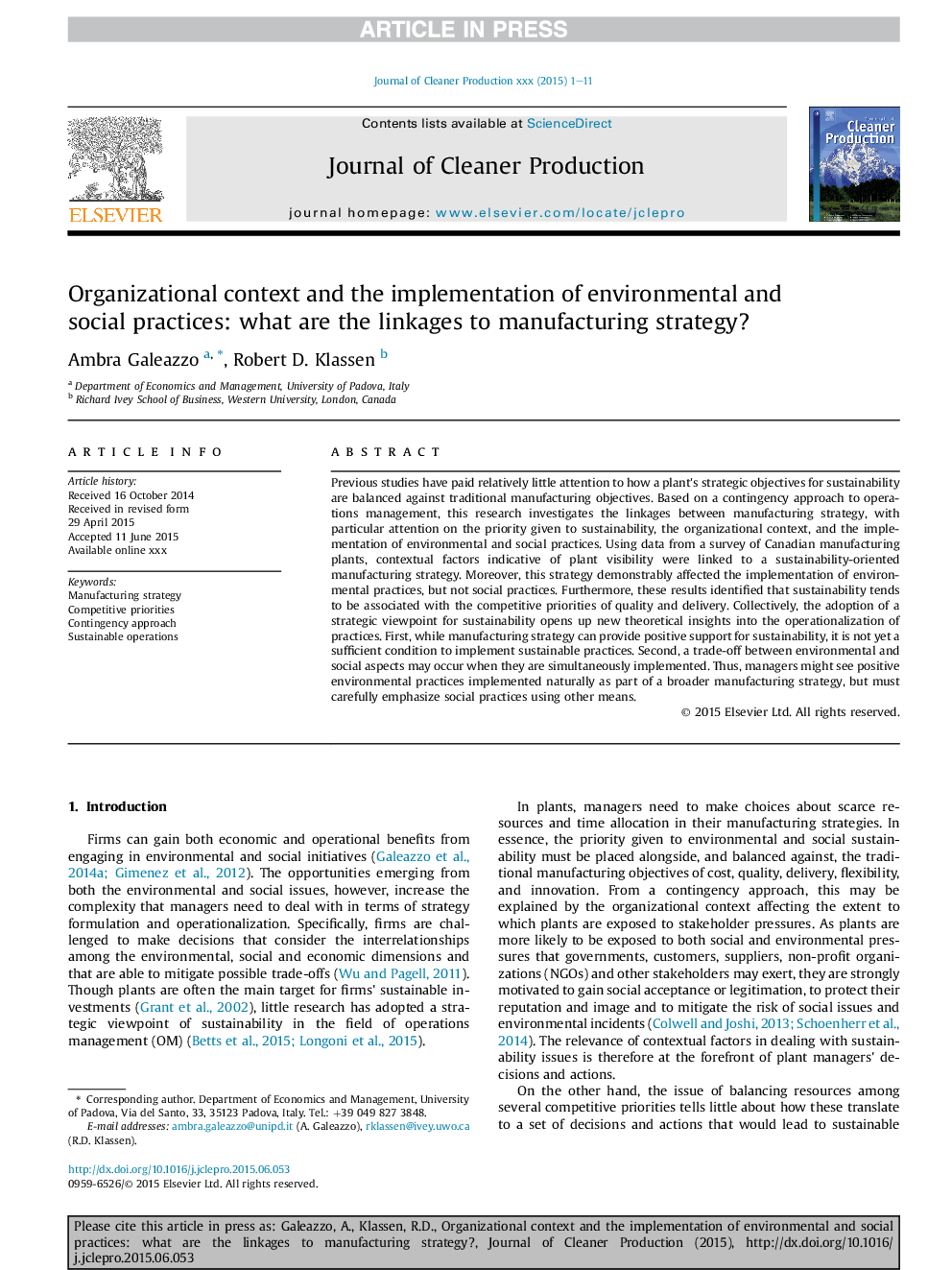| Article ID | Journal | Published Year | Pages | File Type |
|---|---|---|---|---|
| 10688152 | Journal of Cleaner Production | 2015 | 11 Pages |
Abstract
Previous studies have paid relatively little attention to how a plant's strategic objectives for sustainability are balanced against traditional manufacturing objectives. Based on a contingency approach to operations management, this research investigates the linkages between manufacturing strategy, with particular attention on the priority given to sustainability, the organizational context, and the implementation of environmental and social practices. Using data from a survey of Canadian manufacturing plants, contextual factors indicative of plant visibility were linked to a sustainability-oriented manufacturing strategy. Moreover, this strategy demonstrably affected the implementation of environmental practices, but not social practices. Furthermore, these results identified that sustainability tends to be associated with the competitive priorities of quality and delivery. Collectively, the adoption of a strategic viewpoint for sustainability opens up new theoretical insights into the operationalization of practices. First, while manufacturing strategy can provide positive support for sustainability, it is not yet a sufficient condition to implement sustainable practices. Second, a trade-off between environmental and social aspects may occur when they are simultaneously implemented. Thus, managers might see positive environmental practices implemented naturally as part of a broader manufacturing strategy, but must carefully emphasize social practices using other means.
Related Topics
Physical Sciences and Engineering
Energy
Renewable Energy, Sustainability and the Environment
Authors
Ambra Galeazzo, Robert D. Klassen,
